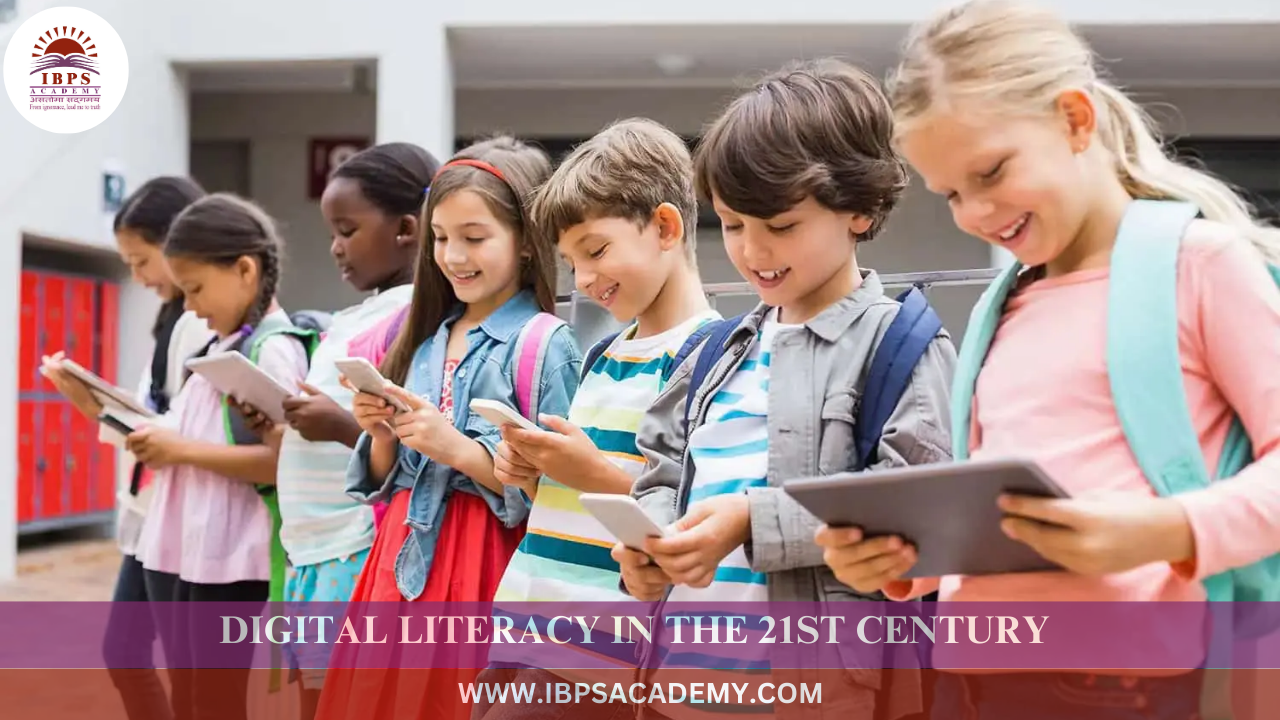

In today’s increasingly digital world, digital literacy has become an essential skill for individuals to thrive personally, academically, and professionally. It goes beyond just knowing how to use a computer or smartphone; it involves the ability to critically evaluate and effectively use digital tools, media, and platforms. The following points elaborate on the significance, components, and challenges of digital literacy in the 21st century:
Digital literacy is the ability to access, manage, evaluate, and create information using digital technologies. It encompasses a range of skills, from basic computer operation to advanced capabilities such as understanding data privacy and cybersecurity. It includes:
In the 21st century, digital literacy is foundational to success in various aspects of life:
Education: With the rise of online learning platforms and digital resources, students need digital skills to access learning materials, conduct research, and collaborate virtually. Digital literacy empowers individuals to engage in a global educational environment, making learning more interactive and accessible.
Employment: Many modern jobs require digital skills, whether it’s working with basic office software, using specialized programs, or managing social media for business purposes. In fact, many industries now rely on digital tools for communication, project management, and marketing.
Civic Engagement: The internet is a major platform for participating in civic and social activities, from voting to participating in online petitions or awareness campaigns. Being digitally literate helps individuals navigate the digital landscape of civic and political engagement, avoiding misinformation and making informed decisions.
Information Literacy: The ability to search for, evaluate, and use information from digital sources critically. This includes knowing how to identify credible sources and avoid misinformation or disinformation.
Media Literacy: Understanding how digital media (including social media, news, and advertisements) influence public opinion, culture, and personal beliefs. Media literacy helps individuals navigate the challenges of biased or misleading content.
Cybersecurity Awareness: As online threats increase, understanding how to protect personal information and stay safe online is crucial. Cybersecurity literacy includes knowledge about privacy settings, phishing attacks, secure passwords, and data protection.
Digital Communication: Being able to communicate effectively in digital spaces, which includes knowing when and how to use tools like email, video calls, social media, and blogs.
Digital Collaboration: Collaboration tools like cloud storage, shared documents, and project management software are now part of everyday work. Being able to work effectively in virtual teams is an essential skill.
Despite its importance, many people face challenges in achieving full digital literacy:
Access to Technology: Not everyone has access to high-speed internet or modern computing devices, leading to a digital divide. This gap can prevent people, particularly in lower-income or rural areas, from acquiring necessary digital skills.
Digital Overload and Privacy Concerns: The vast amount of information online can lead to digital overload, where people struggle to manage and filter through content. Additionally, privacy concerns, such as data theft or surveillance, pose a challenge to becoming fully digitally literate.
Lack of Digital Education: In many parts of the world, schools and institutions have yet to fully integrate digital literacy into their curricula. Many individuals may not receive comprehensive digital education, leaving them ill-equipped to deal with digital challenges.
As technology continues to evolve, digital literacy will remain a dynamic and essential skill set. Future trends in digital literacy may include:
Artificial Intelligence (AI) and Automation: As AI and automation tools become more integrated into workplaces, individuals will need to understand how to use these technologies effectively and ethically.
Augmented and Virtual Reality (AR/VR): As AR/VR technologies grow, new forms of learning and communication will emerge, requiring digital literacy to adapt to these new ways of engaging with the digital world.
Critical Digital Citizenship: In an era where the lines between the digital and physical worlds are increasingly blurred, critical digital citizenship will be crucial for ethical behavior online, including respecting others' rights and contributing positively to digital communities.
In conclusion, digital literacy is no longer just a supplementary skill but a critical competence that individuals must develop to navigate the complexities of the 21st-century world. It involves not just using technology but also understanding its impact on society, managing digital risks, and leveraging its potential for creativity, collaboration, and innovation. Ensuring widespread digital literacy will be key to fostering a more inclusive and equitable digital future.
